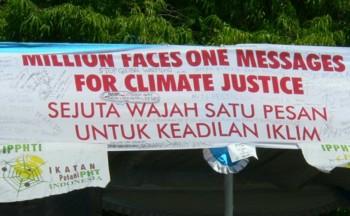- Home
- About
- Campaigns
- Regions
- Themes
- Agrofuels
- Climate justice
- Coastal communities and fisheries
- Disasters
- Economy & debt
- Energy
- Foreign investment
- Forests & forest fires
- Human rights
- Indigenous Peoples
- International Financial Institutions
- Land and food security
- Laws & regulations
- Mining, oil & gas
- Plantations
- Politics & democracy
- REDD
- Regional autonomy
- Transmigration
- Water and dams
- Women
- Publications
- Links
- Contact
Theme
- Agrofuels (5)
- Climate justice (26)
- Coastal communities and fisheries (4)
- Disasters (1)
- Economy & debt (5)
- Energy (4)
- Foreign investment (5)
- Forests & forest fires (13)
- Human rights (10)
- Indigenous Peoples (17)
- International Financial Institutions (8)
- Land and food security (7)
- Laws & regulations (8)
- Mining, oil & gas (2)
- Plantations (8)
- REDD (14)
- Regional autonomy (1)
- Women (4)
Publication
- Newsletter articles (22)
- Special reports & briefings (1)
- Books (1)
- Photos and videos (2)
- Press releases & position papers (1)
- Letters (1)
Climate Justice and sustainable livelihoods

Banner in both languages
